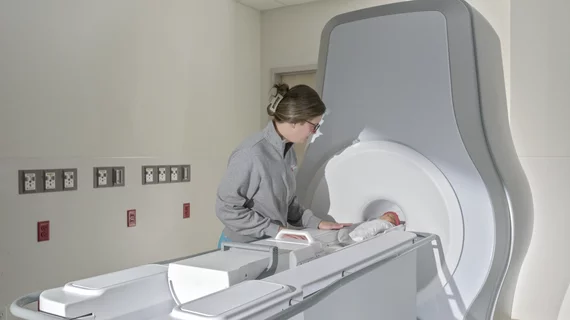After raising nearly $12 million in funding, a Cincinnati, Ohio, startup is rolling out a new specialized MRI unit for newborns treated in the neonatal intensive care unit.
Eyas Medical Imaging announced the first installation of its “groundbreaking” Ascent system in the NICU at Cincinnati Children’s. Not yet cleared for commercial use by the U.S. FDA, providers plan to use the system to conduct research ahead of the company’s 510(k) application.
The machine utilizes a 3-tesla magnet to provide field strength previously unavailable in neonatal MRI systems. Eyas Medical Imaging said this helps solve a “huge access problem,” with providers previously needing to transport fragile newborns to alternate locations for examination.
“This is a significant technological advancement for our most vulnerable patients and validates the high level of innovation and problem-solving happening right here in Cincinnati,” Abram Gordon, who serves as VP of Cincinnati Children’s Innovation Ventures, said in a July 12 announcement.
Eyas was first founded in 2014, with MR physicist Charles Dumoulin, PhD, a professor of radiology at Cincinnati Children’s, conceiving the technology. CincyTech led the seed stage funding for Eyas, with additional contributions from the JobsOhio Growth Capital Fund. Matt Storer, executive in residence for CincyTech, will assume the role of CEO, helping to pursue FDA clearance for the company’s technology “in the near future.”

